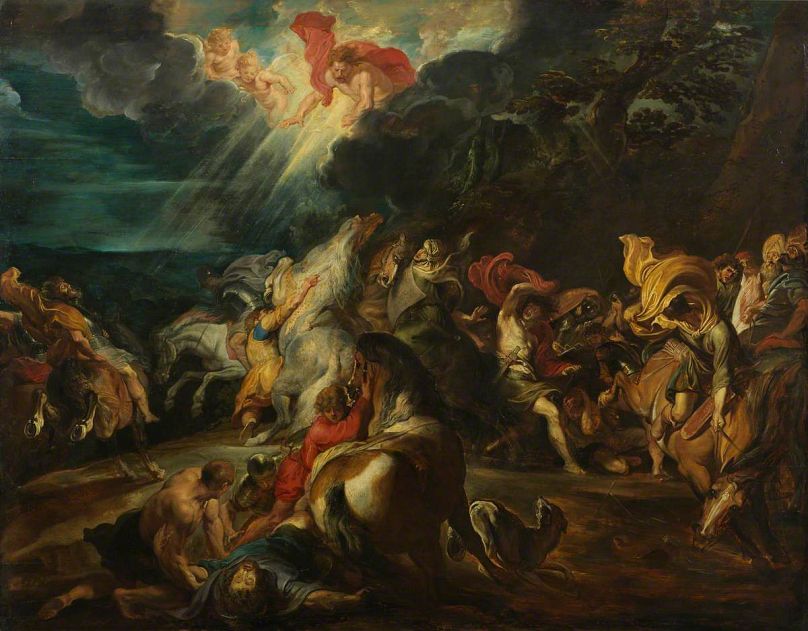The UK government has denied a claim for three Rubens paintings to be returned to the heirs of Franz Wilhelm Koenigs.
Three paintings by the Flemish Baroque artist Peter Paul Rubens have been permitted to remain at the Courtauld Gallery in London, after the UK’s Spoliation Advisory Panel rejected a claim from the Koenigs family.
‘St Gregory the Great with Ss Maurus and Papianus and St. Domitilla with Ss Nereus and Achilleus’, ‘The Conversion of St. Paul’ and ‘The Bounty of James 1 Triumphing Over Avarice’ were all painted by Rubens between 1606 and 1632, the period in which some of his most respected works were created.
These three paintings were part of the art collection of Franz Wilhelm Koenigs, an international banker from Prussia, Germany at the beginning of the 20th century. Between 1931 and 1935, Koenigs transferred much of his art collection – including the three Rubens – to the bank Lisser & Rosenkranz, as collateral to secure loans.
Lisser & Rosenkranz was a Jewish-owned bank based out of the Netherlands, but as the Nazi regime took control of Europe, the bank opted to voluntarily liquidate. In this process, it sold the Rubens paintings to Count Antoine Seilern, an Anglo-Austrian art collector who bequeathed the works to the Courtauld Institute as the Princes Gate collection.
Koenigs died in 1941 when he fell in front of a train in Cologne. His descendants believe he was murdered by the Nazis as Koenigs was then engaged with attempting to gain Dutch citizenship and his son had died fighting Franco’s fascist Spanish regime.
The art collector’s granddaughter, Christine Koenigs, has appealed on multiple occasions for the return of the Rubens paintings to her family. This marks the fifth time, and the second to the UK’s advisory panel, that Christine Koenigs has claimed ownership of the paintings.
Despite Christine Koenigs’ latest application, stating that she along with seven out of 13 of her grandfather’s heirs should be entitled to the 2.4 per cent of shares Koenigs owned in the bank, the Spoliation Advisory Panel has denied it.
“The Panel concluded that the claimants had neither a legal nor a moral claim to the 3 paintings and that the works should continue to be enjoyed in a public museum in line with the wishes of Franz Koenigs,” the report reads.
The Spoliation Advisory Panel was created by the UK government in 2000 to consider restitution claims of artworks lost during the Nazi regime. For now, it seems the three Rubens will stay with the Courtauld Institute.












